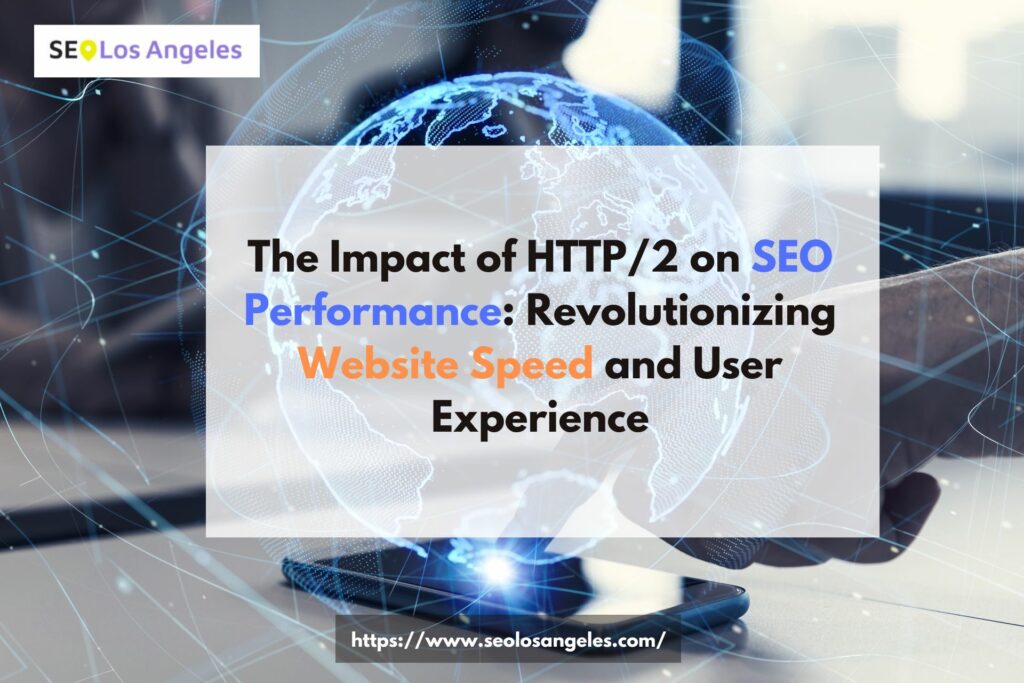In the fast-paced digital landscape, where seconds matter, website speed and user experience have emerged as crucial factors for search engine optimization (SEO). The evolution of the Hypertext Transfer Protocol (HTTP) from version 1.1 to HTTP/2 has revolutionized the way websites are delivered, significantly impacting SEO performance. This article delves into the profound impact of HTTP/2 on SEO performance, highlighting its benefits, implementation strategies, and frequently asked questions to help you optimize your website for better search engine rankings.
The Impact of HTTP/2 on SEO Performance
With the advent of HTTP/2, websites have witnessed a remarkable improvement in speed, resulting in enhanced user experience. The key features of HTTP/2 have had a significant impact on SEO performance:
Multiplexing: Enabling Faster Loading Times
HTTP/2’s multiplexing feature allows multiple requests and responses to be sent concurrently over a single connection, eliminating the need for multiple round trips. As a result, websites load faster, positively influencing SEO performance. The faster your website loads, the better chance you have to engage users and reduce bounce rates.
Server Push: Reducing Latency and Resource Dependency
HTTP/2’s server push capability empowers servers to proactively push additional resources to the user’s browser without waiting for a request. This reduces latency, as resources are readily available when needed, resulting in faster rendering and improved page load times. By minimizing resource dependency, server push optimizes SEO performance by providing a seamless user experience.
Header Compression: Optimizing Data Transfer
HTTP/2 introduces header compression, which significantly reduces the overhead of transferring data between the server and the client. By compressing headers, the amount of data transmitted is reduced, leading to faster load times and improved SEO performance. Reduced data transfer positively impacts website rankings, as search engines value fast-loading websites.
Prioritization: Enhancing User Experience
HTTP/2 incorporates stream prioritization, allowing servers to assign priority levels to different resources. This ensures that critical resources are loaded first, providing a smoother and more engaging user experience. By prioritizing the loading of important elements, websites can improve SEO performance by reducing bounce rates and increasing user satisfaction.
Enhanced Security: SSL/TLS Encryption
HTTP/2 encourages the use of SSL/TLS encryption by making it a requirement for the protocol. This emphasis on security not only protects user data but also influences SEO rankings. Search engines prioritize secure websites, and adopting HTTP/2 facilitates the implementation of SSL/TLS, bolstering SEO performance.
Implementation Strategies for HTTP/2
Migrating to HTTP/2 requires careful planning and execution. Here are some strategies to implement HTTP/2 effectively:
Ensure Server and Browser Compatibility
Before migrating to HTTP/2, it is crucial to ensure that both your server and users’ browsers support the protocol. Most modern browsers and servers are compatible with HTTP/2, but it is essential to verify compatibility to avoid any compatibility issues.
Enable HTTPS and SSL/TLS Encryption
Since HTTP/2 mandates the use of SSL/TLS encryption, you need to enable HTTPS on your website. Obtain an SSL/TLS certificate and configure your server to serve web pages securely. This not only improves SEO performance but also enhances website security.
Update Server Software
To leverage the benefits of HTTP/2, ensure that your server software is up to date. Many popular web servers, such as Apache and Nginx, offer HTTP/2 support through software updates. Check the documentation of your server software and follow the necessary steps to enable HTTP/2.
Optimize Website Resources
To fully exploit the advantages of HTTP/2, optimize your website resources. Minimize the number of HTTP requests by combining and minifying CSS and JavaScript files. Optimize images by compressing them without compromising quality. By reducing the size and number of resources, you can maximize the efficiency of HTTP/2.
Monitor and Test Performance
After implementing HTTP/2, monitor and test your website’s performance regularly. Keep an eye on website speed, loading times, and user experience metrics. This will help you identify and resolve any issues promptly, ensuring that your website consistently delivers optimal SEO performance.
Conclusion
The adoption of HTTP/2 has transformed SEO performance by optimizing website speed and enhancing user experience. With features like multiplexing, server push, header compression, prioritization, and enhanced security, HTTP/2 offers numerous benefits for improving search engine rankings. By following effective implementation strategies and considering the FAQs discussed, you can leverage the power of HTTP/2 to optimize your website and stay ahead in the competitive digital landscape.
Frequently Asked Questions about HTTP/2 and SEO Performance
Q: Does migrating to HTTP/2 improve search engine rankings?
A: Yes, migrating to HTTP/2 can positively impact search engine rankings by improving website speed and user experience.
Q: Is it necessary to have an SSL/TLS certificate for HTTP/2?
A: Yes, HTTP/2 requires the use of SSL/TLS encryption, making it necessary to have an SSL/TLS certificate for implementing the protocol.
Q: Can I implement HTTP/2 without HTTPS?
A: No, HTTP/2 mandates the use of HTTPS, ensuring a secure connection between the server and the client.
Q: What steps should I take if my server does not support HTTP/2?
A: If your server does not support HTTP/2, consider upgrading your server software or switching to a server that offers HTTP/2 support.
Q: Will HTTP/2 impact mobile SEO performance?
A: Yes, HTTP/2 positively impacts mobile SEO performance by enhancing website speed and user experience, which are crucial factors for mobile rankings.
Q: Can HTTP/2 improve website loading times on slower internet connections?
A: While HTTP/2 offers various performance optimizations, slower internet connections may still experience limitations in loading times.
